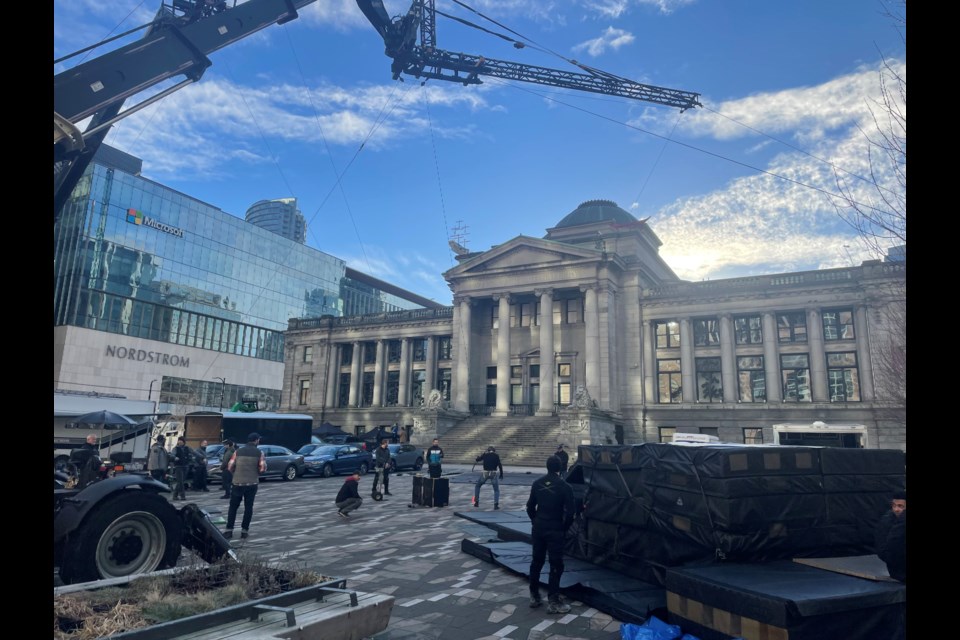Back in 2019, Â鶹´«Ã½Ó³»City Council voted to eliminate the use of generators for food trucks and film sets. Not only are generators noisy but they are a source of greenhouse gases and while it was an environmentally conscious decision to ban them, it left the question, how will the show go on?
Film sets require a tremendous amount of power to keep all the equipment going and they don't typically set up shop in locations with the capacity to handle their electrical needs.
As a solution, the City of Â鶹´«Ã½Ó³»has introduced clean energy kiosks that will serve the most popular filming locations.
For now, there are three kiosks designed to deliver renewable, hydro-powered energy to productions in Northeast False Creek, one of the most heavily used areas for film and where over 200 generators are typically used annually.
The eventual goal is a city-wide network of clean energy kiosks that film sets can use to plug into Vancouver's electrical power grid at filming locations and to grow the aiming to replace diesel generators and reduce emissions.
The City’s Public Realm Electrification Program is expanding the public charging network by increasing electric plug-in options across Vancouver for a wide variety of uses, including the film industry, food trucks, special events, e-bikes and scooters, and EV charging stations.
“As a world leader in sustainability and film and television production, it only makes sense for Â鶹´«Ã½Ó³»to drive solutions that help productions use clean energy to lower their environmental impact,” says Mayor Ken Sim in a press release. “B.C.'s $4 billion film industry is one of our greatest economic assets, and productions right across our city will be cleaner, quieter, and more sustainable with the clean energy kiosk network.”
Deputy General Manager of Engineering Services Margaret Wittgens, says that with the plan in place, the city is on track to reduce emissions by 33 per cent over the next seven years. But in addition to the sustainability factor, neighbourhoods used to seeing a lot of film activity are about to get a lot quieter since the kiosks produce significantly less noise than generators.
By 2030 the city hopes to have a clean energy kiosk in close proximity to all major filming locations.
“We’re very enthused about the City’s global leadership on clean energy policy and infrastructure investments in response to the Climate Emergency,” says Acting Â鶹´«Ã½Ó³»Film Commissioner Geoff Teoli. “This is critically important to the health of our planet and our communities as well as a strategic advantage in attracting employers and projects that share our values.”




